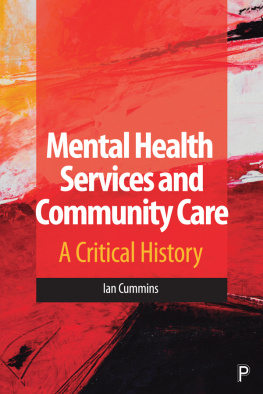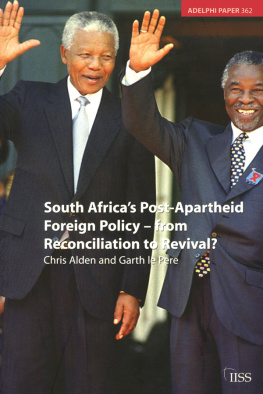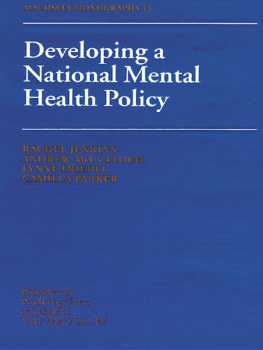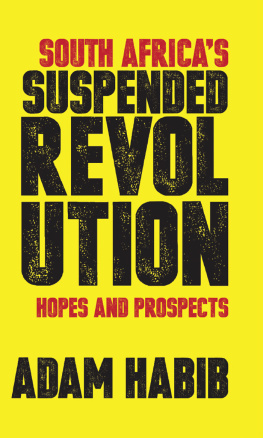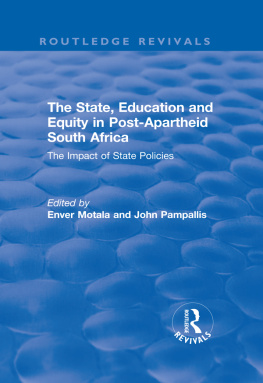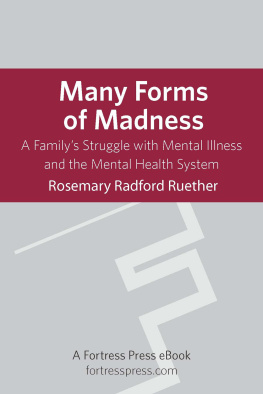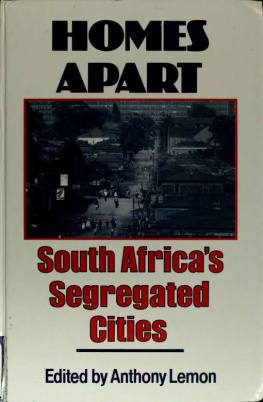
The Political Economy of Mental Illness in South Africa
The book describes key socio-political reforms that helped shape post-apartheid South Africas mental health system.
The author interrogates how reforms shaped public, community-based services for people living with severe mental illness, and how features of this care has been determined, in part at least, by the relations between actors and structures in the state, private for-profit health care, and civil society spheres. A description of the development of South Africas post-apartheid health system, and the contentions that emerge therein, sets the stage for an analysis of the countrys most tragic human rights failure during its democratic period, namely the Life Esidimeni tragedy. The roots of the tragedy are not only framed as a loss of life and dignity as a result of political corruption and administrative mismanagement, but as a power differential that ultimately highlights an unjust system that relegates its most vulnerable citizens to commodities, without voice and without agency. The book concludes that the commodification of severe mental illness has been a product of neoliberal discourses that have shaped the economistic ways in which the post-apartheid South African state have governed poverty and severe mental illness.
This book will be of interest to scholars of health, social and economic policy in South Africa.
Andr J. van Rensburg is a senior researcher at the Centre for Rural Health, University of KwaZulu-Natal, South Africa, and a research fellow at the Centre for Health Systems Research & Development, University of the Free State, South Africa.
Routledge Studies in Health in Africa
Series Editor: Pieter Fourie
The Normalization of the HIV and AIDS Epidemic in South Africa
Katinka de Wet
Preventing HIV Among Young People in Southern and Eastern Africa
Emerging Evidence and Intervention Strategies
Edited by Kaymarlin Govender and Nana K. Poku
The Political Economy of Mental Illness in South Africa
Andr J. van Rensburg
The Political Economy of Mental Illness in South Africa
Andr J. van Rensburg
First published 2021
by Routledge
2 Park Square, Milton Park, Abingdon, Oxon OX14 4RN
and by Routledge
52 Vanderbilt Avenue, New York, NY 10017
Routledge is an imprint of the Taylor & Francis Group, an informa business
2021 Andr J. van Rensburg
The right of Andr J. van Rensburg to be identified as author of this work has been asserted by him in accordance with sections 77 and 78 of the Copyright, Designs and Patents Act 1988.
All rights reserved. No part of this book may be reprinted or reproduced or utilised in any form or by any electronic, mechanical, or other means, now known or hereafter invented, including photocopying and recording, or in any information storage or retrieval system, without permission in writing from the publishers.
Trademark notice: Product or corporate names may be trademarks or registered trademarks, and are used only for identification and explanation without intent to infringe.
British Library Cataloguing-in-Publication Data
A catalogue record for this book is available from the British Library
Library of Congress Cataloging-in-Publication Data
A catalog record has been requested for this book
ISBN: 978-0-367-19263-1 (hbk)
ISBN: 978-0-367-68329-0 (pbk)
ISBN: 978-0-429-20145-5 (ebk)
Typeset in Times New Roman
by Newgen Publishing UK
For Lize
Contents
The core ideas in this book are rooted in a doctoral dissertation, completed at Stellenbosch University and Ghent University, in 2018. The timing of my doctoral research fell in almost perfect sequence with the Life Esidimeni tragedy, and, while my topic focused on mental health care in South Africa, the events could not be adequately translated into the research and dissertation. This book offered an opportunity to reflect on the Life Esidimeni events more fully, in an attempt to move beyond linear explanations of individual incompetence, greed or cruelty. Much is left to explore, and this is a very small start to a longer trajectory in studying the South African mental health system. Arthur Kleinmans (1998, 358):
So daunting is my subject, so limited my skills, that I must beg your indulgence with my overreaching. I do so not to amuse you with a display of my pretensions, but because of a keen sense that there is in this subject so much that matters for all of us.
contain revised sections from the following published papers:
Janse van Rensburg, A., Wouters, E., Fourie, P., van Rensburg, D. and Bracke, P.,2018. Collaborative mental health care in the bureaucratic field of post-apartheid South Africa. Health Sociology Review, 27(3), pp. 279293.
Janse van Rensburg, A., Khan, R., Fourie, P. and Bracke, P., 2019. Politics of mental health care in post-apartheid South Africa. Politikon, 46(2), pp. 192205.
has previously been published as the following:
Janse van Rensburg, A., Petersen, I., Wouters, E., Engelbrecht, M., Kigozi, G., Fourie, P., van Rensburg, D. and Bracke, P.,2018. State and non-state mental health service collaboration in a South African district: a mixed methods study. Health Policy and Planning, 33(4), pp. 516527.
has previously been published as the following:
Janse van Rensburg, A., Khan, R., Wouters, E., van Rensburg, D., Fourie, P. and Bracke, P.,2018. At the coalface of collaborative mental health care: A qualitative study of governance and power in district-level service provision in South Africa. The International Journal of Health Planning and Management, 33(4), pp. 11211135.
These publications also appear in the following dissertation:
Janse van Rensburg, A.2018. Governance and Power in Mental Health Integration Processes in South Africa. Doctoral Dissertation. Stellenbosch University and Ghent University. Supervisors: Prof Pieter Fourie and Prof Dr. Piet Bracke.
This work was supported by the Wellcome Trust [219675/Z/19/Z]; National Institute For Health Research [GHRU 16/136/54]; and National Institute for Mental Health [1U19MH113191-01]. The views expressed in this publication are those of the author and not necessarily those of the funders.
On 19 October 2017, Reverend Joseph Maboe, in the most public of spaces, told the world what happened with his son Hendrick Ramtodi Maboe, known as Billy. Billy was one of a group of people with severe mental and neurological conditions that have come to be known as the Life Esidimeni victims. Following a highly controversial chain of decisions by the Gauteng Department of Health in 20152016, a large group of patients were removed from the private, subsidised facilities of Life Health care and moved into the care of a number of organisations purportedly specialising in care for severe and debilitating conditions. After a number of investigations, it was found that 144 people died due to neglect some remain missing to this day. The absolute horror, the systemic contexts within which the Life Esidimeni events were rendered possible, were laid bare in thousands of pieces of commentary and, most pressingly, in the narratives of the victims families. In a key extract from Reverend Maboes testimony at the Life Esidimeni public arbitration hearings in 2017, we see a searing indictment of South Africas post-apartheid mental health system:


